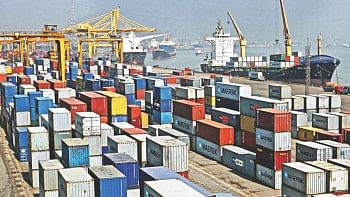The truth hidden in plain sight

It was about four months ago when I first read Atlantic's cover story "My Family's Slave" by Pulitzer Prize-winning journalist Alex Tizon. The story was about a woman called Lola, a domestic help who immigrated from the Philippines to the United States with Tizon's family in the 60s. Lola was his mother's childhood nanny—a "gift" from his maternal grandfather. Lola served the family for more than five decades. She worked without pay, was kept back from going to the Philippines by Tizon's parents, and suffered physical and emotional abuse for years.
It wasn't until the age of 11 that Tizon realised Lola was his family's slave.
Tizon's firsthand account of modern-day slavery went viral. It instantly sparked off a much-needed, heated debate on social media. Interestingly though, many Filipinos jumped to Tizon's defence when questions about his own complicity in the enslavement of Lola arose. They argued that westerners without an understanding of the Filipino context were too quick to judge him. After all, what do they know about the culture of Filipino society where stay-in maids like Lola are nothing uncommon?
It made me think, Bangladeshis, too, would perhaps react in a similar manner had the article been about a Bangladeshi domestic worker instead of Lola. Many would say, "We treat our housemaids far better than that." But the more introspective among us, instead of wallowing in self-righteousness, would point to the ubiquity of child labour and underpaid house help who toil away in near slavery-like conditions behind closed doors.
The Global Slavery Index 2016 revealed some startling facts about slavery in the 21st century. Forty-five million people live in modern slavery globally, out of which an astounding thirty million, or two-thirds, are from the Asia Pacific. Bangladesh ranks 10th out of a total of 167 countries and fourth in Asia. The number of people living in modern slavery in the country is 1,531,300—equivalent to the total population of Bahrain.
"Eradicating modern slavery in a country marred by entrenched poverty is no easy task, especially when the majority of it occurs in the private economy—in our private homes and private businesses—and has seeped into so many aspects of our society today.
According to surveys, whereas forced labour affects more men (85 percent), forced marriage disproportionately affects more women (88 percent). The areas primarily affected by modern slavery in Bangladesh today are the manufacturing of garments, shrimp and dry fish farming and production, commercial sexual exploitation, child marriage and drug production.
It's not like there isn't work being done to educate people about modern-day slavery in Bangladesh—an anathema to the most fundamental values of any nation—and the need to root it out. But somewhere down the line, we have failed. The fact is that we are unbothered—much like our collective indifference to the hypothetical situation had "My Family's Slave" been about a Bangladeshi domestic worker somewhere in the Middle East instead of a Filipino immigrant to the US. But can you blame the people when for the government eradicating modern slavery seems to be an agenda only on paper?
Slavery comes in many forms: bonded labour, forced labour, forced marriage, etc. Unlike chattel slavery, which once functioned and thrived under the auspices of the law, these types of slavery, despite being illegal, continue to flourish in the present day due to the presence of wide, intricate networks of human traffickers, recruitment agencies, and so on. While it is important to note the differences between the many forms of slavery, the underlying fact is that they are all rooted in coercion.
As revealing as the Global Slavery Index is, statistics alone don't tell the whole story. Numbers don't quite capture the extent of government inaction.
We know by now that the mere formulation of laws is simply not enough: Of what use is a piece of legislation if not implemented? In fact, the state minister for labour and employment echoed this very sentiment recently. He was speaking at a seminar on the repression of domestic workers, and the discussions focused on the need to implement the Domestic Workers Protection and Welfare Policy 2015 and formulate a law based on this policy. The state minister said, "It makes me frustrated knowing that the upper-class and educated people in society are repressing the domestic workers. If they have that attitude, who are we going to formulate the law for? The educated people know that there is a labour law in the country. Do they follow it?"
You can't argue with that logic, but this coming from an authority figure responsible for implementing the law is absurd. Are laws not created precisely so that accountability can be established? And how do you go about doing that without enforcing the law? Despite the Bangladesh Labour Act (BLA) 2006 and Prevention and Suppression of Human Trafficking Act (PSHTA) 2012, why are forced labour, child labour and human trafficking so widespread?
Eradicating modern slavery in a country marred by entrenched poverty is no easy task, especially when the majority of it occurs in the private economy—in our private homes and private businesses—and has seeped into so many aspects of our society today. But if the state minister's outlook is any indication of the government's indifference to tackling modern-day slavery in Bangladesh, I would beg to differ and go as far as to say that it is not the lack of laws we are suffering from.
It's the lack of enforcement of the myriad of laws that's more offensive.
Nahela Nowshin is a member of the editorial team at The Daily Star.










Comments